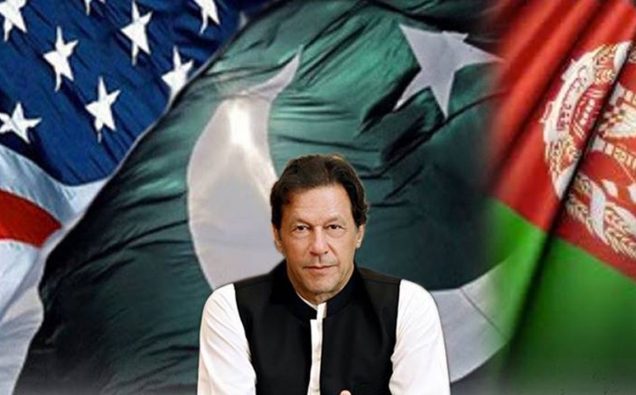
In a promising diplomatic move, Pakistan arranged face-to-face meeting between a top U.S. envoy and the warring Afghan Taliban as part of efforts to kickstart peace process to end the conflict in Afghanistan.
Washington’s Special Envoy for Afghanistan Zlmaay Khalilzd and Afghan Taliban rebels – fighting in the U.S.-backed government in Kabul – met in the United Arab Emirates (UAE) on Monday, Pakistani officials confirmed.
Prime Minister Imran Khan said Islamabad made the meeting possible and expressed the hope that it would lead to peace and reconciliation process to end the 17-year-long conflict in Afghanistan.
Pakistan has helped in the dialogue between Taliban and the US in Abu Dhabi. Let us pray that this leads to peace and ends almost three decades of suffering of the brave Afghan people. Pakistan will be doing everything within its power to further the peace process.
— Imran Khan (@ImranKhanPTI) December 18, 2018
Representatives from Pakistan, the UAE and Saudi Arabia also attended the talks, reports say.
The Untied States says it welcomes Pakistan’s efforts toward peace in the region including Afghanistan.
The Afghan war – launched in the wake of 9/11 terrorist attacks – has prolonged amid lack of clear direction and inability of Kabul to bring the Afghan Taliban into the peace process.
Both the United States and Pakistan – a U.S. corridor into Afghanistan – have suffered with economic and human losses. The conflict has also seen the pivotal U-S-Pakistan relations nosedive this year as the frustrated Trump Administration blamed Islamabad for not helping the peace and allowing the Afghan Taliban to find sanctuaries on its soil.
Islamabad has been a major U.S. ally over the past several decades but the relations freeze whenever the U.S. sees its interest in the country diminish including historical turning points like the collapse of the Soviet Union after Moscow’s defeat in Afghanistan.
But last week President Donald Trump addressed a letter to Pakistan’s Prime Minister Khan, requesting his help for a negotiated settlement of the Afghan war. The Taliban now controls more than 50 percent of the Afghan territory, and Kabul remains a divided capital with deep political divides between Afghan President Ashraf Ghani and Chief Executive Abdullah Abdullah.
The latest Pakistani move also reminiscences Islamabad’s role in bringing Beijing and Washington closer about half a century ago when U.S. Secretary of State Henry Kissinger was able to visit Beijing in 1971 with the help of Pakistan.
Afghanistan’s leaders have also welcomed the talks opportunity for a political solution to the costly conflict that has hurt the landlocked country and its youth in many ways.
Meanwhile, an Afghan Taliban spokesperson says the group would not talk to the Afghan government.
The December 17 meeting is the second time, Pakistan facilitated direct talks between U.S. and Taliban.
In 2016, Pakistan hosted the first-ever direct talks between the Taliban and the American and Afghan government representatives in Murree.
The process failed to make headway after news of the death of Taliban supreme leader Mullah Omar was leaked to the media by some Afghan officials.
This year, the Trump administration has shown a renewed interest in resolving the conflict through some sort of peace deal with the Taliban insurgents before April 2019 Afghan presidential elections.


















[…] James Mattis to resign from the Pentagon leadership. Trump’s shift in Afghanistan policy follows Pakistan-facilitated talks between U.S. Special Envoy Zalmay Khalilzad and the Taliban Representativ… in Qatar. The Taliban, a deeply conservative force of militants, are reported to be in control of […]